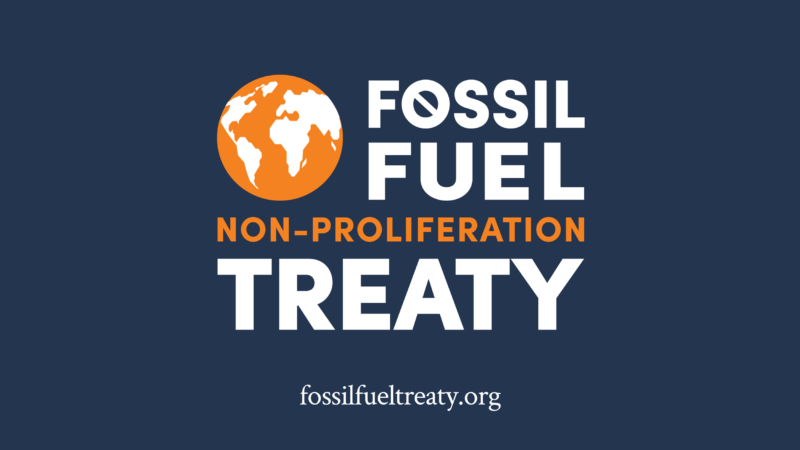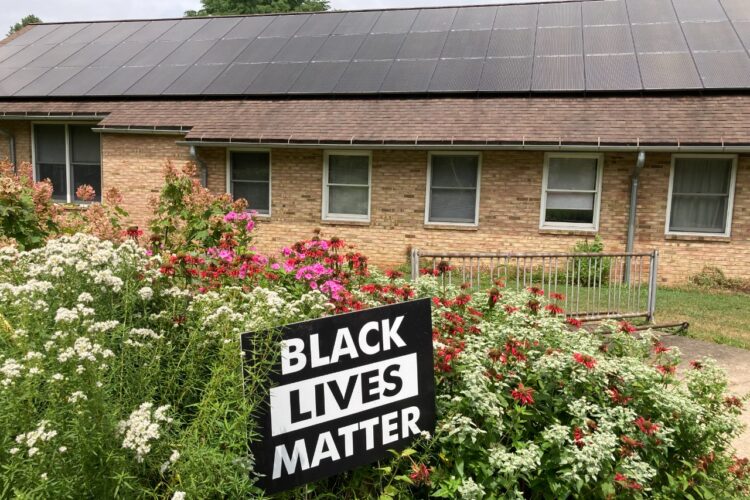Fossil Fuel Non-Proliferation

Oil, gas and coal are the root cause of the climate crisis and despite the destructive reality of fossil fuels, as well as the constant warnings of the scientific community, there is no binding mechanism to limit their production.
The Paris Agreement, important as it is, does not reference fossil fuels once and has failed to constrain production. The commitments made by states to reduce fossil fuel consumption are indispensable, but to think that they will lead to a decrease in production is false.
Therefore, a complementary agreement is needed. Just like fifty years ago, when the world used international treaties to defuse the threats posed by nuclear weapons, today, the world needs a Fossil Fuel Non-Proliferation Treaty to phase out fossil fuels, support dependent economies, workers and communities to diversify away from fossil fuels, ensure 100% access to renewable energy globally and promote a just transition that leaves no-one behind.
Frontline communities particularly those from the Global South are paying the highest price of fossil fuel exploitation and climate change, yet are the least responsible. All over the world and for decades, frontline struggles have shown leadership in resisting the plundering of their territories.
In response to this crisis, an early proposal came from officials and civil society leaders in the Pacific for a moratorium and binding international mechanisms specifically dedicated to phasing out fossil fuels in the Pacific. In 2015, in the Suva Declaration On Climate Change, issued from the Pacific Islands Development Forum Third Annual Summit held in Suva, Fiji, decision-makers called for: “a new global dialogue on the implementation of an international moratorium on the development and expansion of fossil fuel extracting industries, particularly the construction of new coal mines, as an urgent step towards decarbonising the global economy.”
In 2016, following a summit in the Solomon Islands, 14 Pacific Island nations discussed the world’s first treaty that would ban new coal mining and embrace the 1.5C goal set at the Paris climate talks. Another important step was the call made by the least developed countries for a fossil fuel phase-out.
In 2017, the Least Developed Countries (LDC) group made a joint closing statement at COP23, chaired by Fiji and held in Bonn, in which they stressed the need for: “an increase in ambition by all countries to put us on track to limit the global temperature increase to 1.5 degrees Celsius by strengthening our national contributions, managing a phase-out of fossil fuels, promoting renewable energy and implementing the most ambitious climate action.”
At the international level, civil society actors also mobilized actively for a global phase-out. This led to the Lofoten Declaration, written in 2017 at a gathering in the Lofoten Islands, Norway, with academics, analysts, and activists. The declaration recognized the emergency to stop the expansion of the oil and gas industry in order to achieve the Paris climate goals. It also called for action to be taken first by countries having benefited the most from fossil fuel extraction, having thus a historical responsibility for the climate crisis, but being also the best positioned in terms of capacity to take concrete climate action for a global just transition away from fossil fuel production.
The declaration stated: “It is the urgent responsibility and moral obligation of wealthy fossil fuel producers to lead in putting an end to fossil fuel development and to manage the decline of existing production.” During the discussions around the Lofoten Declaration, analogies to the weapons treaties were already included since landmines and nuclear ban treaties are important inspirations.
Based on the best practices of former treaty campaigns and existing struggles led by frontline communities, the Fossil Fuel Non-Proliferation Treaty Initiative started in 2019 through a Climate Breakthrough Project award.
Today, it is carried by a diverse Steering Committee, an international support team, more than 750 organizations, 12 cities, over 2,500 scientists and academics, Parliamentarians across the world, youth, senior faith leaders, Indigenous movements, as well as 101 Nobel Laureates including the Dalai Lama.
A rising chorus of voices is calling for a Fossil Fuel Non Proliferation Treaty, in order to phase-out fossil fuels and build a globally just transition for every worker, community and country.
Quaker Earthcare Witness joined this call in 2022 and invites you to learn more at FossilFuelTreaty.org.

